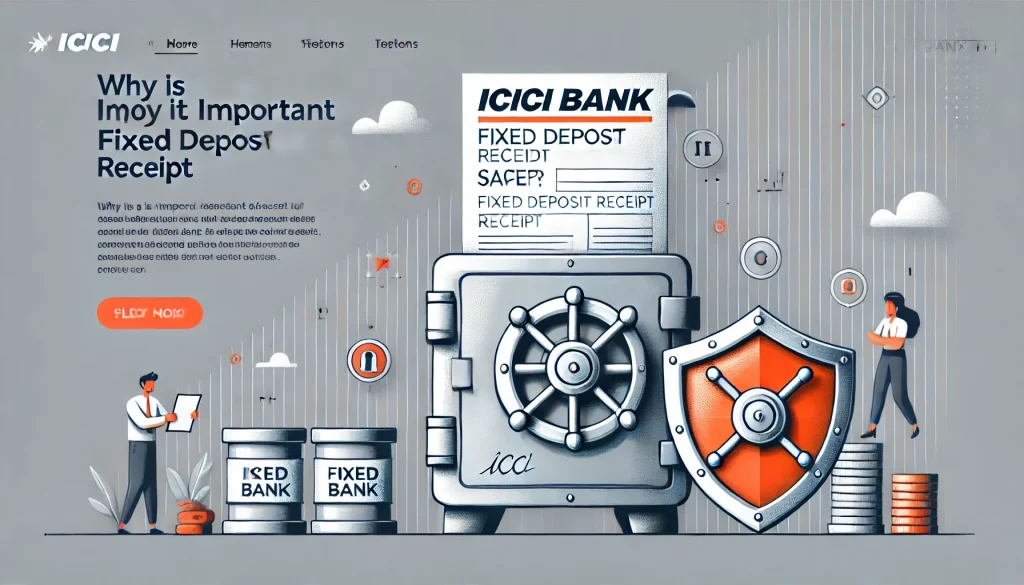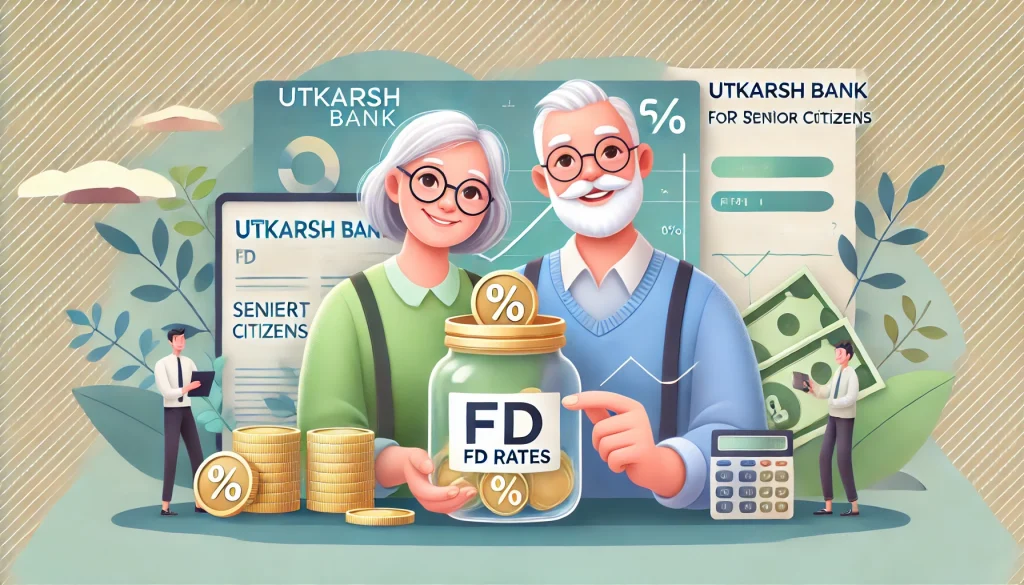
Standard Chartered Bank is a leading international banking group with a presence in some of the most dynamic markets in the world. It has been operating in India for around 160 years, which makes it one of the oldest foreign banks in India. This bank currently has a network of 100 branches spread across 42 cities. Apart from being a full-service universal bank, this group also has Non-Banking lending entities. Standard Chartered Bank offers different FD schemes that come with different tenures and varying interest rates. Keep reading to learn about these schemes as well as Standard Chartered FD rates.
| Minimum Deposit | ₹10,000 |
| Maximum Deposit | No limit specified |
| Minimum Tenure | 7 days |
| Maximum Tenure | 5 years |
| Interest Rates | 2.75% to 7.85% (including rates applicable for senior citizens) |
| Lock-in Period | No data available |
| Senior Citizen | 2.75% to 7.85% (in case of deposits below ₹1 crore) |
| General Citizen | 2.75% to 6.75% (for deposits of less than ₹2 crores to more than ₹150 crores) and 6.00% to 6.75% (for non-callable deposits of ₹2 crores to more than equal to ₹150 crores) |
Standard Chartered Bank FD Interest Rates 2024
| Tenure | General Citizen | Senior Citizen |
|---|
Features and Benefits of Standard Chartered Bank FD
Standard Chartered Bank offers different FD schemes that cater to different people. Therefore, before investing in any of the schemes, take a look at the features and benefits the FD schemes have to offer:
- Senior citizens get an additional 0.50% above the Standard Chartered Bank FD rates applicable to the general public.
- You can avail 90% of your term deposit amount as an overdraft or loan.
- The bank offers the opportunity to open a term deposit account completely online from the comfort of your home.
- You can opt for the auto-renewal facility on your term deposit for the same tenure on the day it matures. Therefore, you will not lose interest.
- When you invest in a Standard Chartered Bank term deposit, you can choose the monthly interest payout option.
- You can also choose between simple interest and compound interest calculation options.
How to Book Standard Chartered Bank FD?
Standard Chartered Bank offers their customers the option to invest in their FD schemes both online as well as offline. Keep reading to find the steps that you need to follow if you wish to invest in a fixed deposit offered by Standard Chartered Bank:
Online
You can invest in any FD scheme offered by Standard Chartered Bank online via their internet banking platform. Here are the steps that you can follow:
- Step 1: Log in to the official website of Standard Chartered Bank.
- Step 2: Click on the ‘Accounts and Deposits’ option present on the menu bar.
- Step 3: Now click on ‘Term (Fixed) Deposits’ present under the Time Deposits option.
- Step 4: You will be redirected to the FD page. Here, you need to click on the ‘Apply Now’ option.
- Step 5: A new page will open, and you will need to click on the ‘Login’ option. From the options available, select the ‘Online Banking Login’.
- Step 6: If you are an existing customer of the bank, click on ‘Continue to Login’. In case you are a new customer, select the ‘Register For Digital Banking’ option.
- Step 7: Now follow the online instructions to go ahead with the term deposit application.
Offline
If you want to book an FD in Standard Chartered Bank offline, follow the steps given below:
- Step 1: Visit the nearest branch of Standard Chartered Bank.
- Step 2: Ask for the FD application form from any bank representative.
- Step 3: Fill up the form and submit it along with all the necessary documents and the deposit amount.
- Step 4: After the bank processes your application successfully, your FD account will be created with Standard Chartered Bank.
Documents Required to Book Standard Chartered Bank FD
Here is a list of the documents that the bank will accept:
- PAN card or Form 60/61.
- ID proof – Voter ID card, Aadhaar card, Driving License, etc.
- Age proof – School passing certificate, Aadhaar card, etc.
- Address proof – Utility bills, voter ID card, Aadhaar card, Ration card, etc.
- Passport-size photos
- Duly filled FD application form
- Any other documents required by the bank must be produced.
Eligibility to Open Standard Chartered Bank FD
Following is a list of the individuals or entities who are eligible to opt for an FD scheme in Standard Chartered Bank and make the most of the Standard Chartered fixed deposit rate:
- Applicant Type: Individuals, Partnership and Limited Companies, Proprietors, Clubs, Associations, Societies, Hindu Undivided Families.
- Applicant’s Age: 18 years or more.
Types of Standard Chartered Bank FD Schemes
Here are the FD schemes that you can avail from Standard Chartered Bank to enjoy lucrative SCB FD rates:
1. Standard Chartered Bank Term Deposit
Standard Chartered Bank offers this term deposit scheme for both the general public and senior citizens. This scheme offers you assured returns without having to take high risks. Right from flexible tenure to an overdraft facility, this scheme offers all.
- Minimum Deposit: ₹10,000
- Maximum Deposit: No limit specified
- Tenure: 7 days to 5 years
- Interest Rate: 2.75% to 7.85% (including rates applicable for senior citizens)
- Eligibility: Indian residents
2. Standard Chartered Bank NRE Deposit
If you are someone who wishes to park your foreign earnings in India, then you should try out this scheme. The best part about this scheme is that there is no tax deduction on the interest that you earn. In fact, you can repatriate the principal and interest absolutely free of cost.
- Minimum Deposit: ₹10,000
- Maximum Deposit: No limit specified
- Tenure: 1 year to 5 years
- Interest Rate: 3.50% to 7.35%
- Eligibility: Non-Resident Indians
3. Standard Chartered Bank NRO Deposit
In case you are a Non-Resident Indian who has different sources of income in India, you can try out this scheme. You get the option to choose the manner in which your interest income will be calculated. Other facilities like auto renewal and overdraft are also available with this scheme.
- Minimum Deposit: ₹10,000
- Maximum Deposit: No limit specified
- Tenure: 7 days to 5 years
- Interest Rate: 2.75% to 7.35%
- Eligibility: Non-Resident Indians
4. Standard Chartered Bank FCNR(B) Deposit
FCNR, which stands for Foreign Currency Non-Resident Account, is best suited for NRIs who wish to maintain an FD account in foreign currency. Standard Chartered Bank gives you the opportunity to invest in 6 types of foreign currencies – USD, GBP, EUR, CAD, AUD and JPY. The interest that you earn is tax-free.
- Minimum Deposit: No data available
- Maximum Deposit: No data available
- Tenure: 1 year to 3 years
- Interest Rate: 0.01% to 0.10% (USD)
- Eligibility: Non-Resident Indians
5. Standard Chartered Bank FCNR Deposit with Forward Cover
Want to invest in the FCNR deposit scheme but also wish to earn a higher yield? If this is the case, then Standard Chartered Bank FCNR deposit with Forward Cover is the right choice for you. Not only does this investment save your money from the risk of exchange rate fluctuations, but it also increases your yield on your FCNR deposit.
- Minimum Deposit: USD 5000 or its equivalent
- Maximum Deposit: No limit specified
- Tenure: 1 year to 3 years
- Interest Rate: 0.01% to 0.10%
- Eligibility: Non-Resident Indians
6. Standard Chartered Bank RFC Fixed Deposit
Are you planning to move back to India but are afraid of the volatility of the exchange rate? If so, then you can park your foreign currencies in a Resident Foreign Currency FD account. Standard Chartered Bank offers 5 currency options in case you want to invest in their RFC FD. You have the freedom to fully repatriate the principal and interest of the RFC account.
- Minimum Deposit: No data available
- Maximum Deposit: No data available
- Tenure: 1 year to 3 years
- Interest Rate: 0.01% to 0.10%
- Eligibility: Non-Resident Indians
Before investing in any of the schemes discussed above, it is best to go through the Standard Chartered FD rates as well as terms and conditions. This will help you make a better decision as to which scheme suits your requirements the most. Going through the fine lines is important if you wish to park your hard-earned money in a scheme that offers you the greatest number of benefits.
FAQs
Disclaimer
This article is solely for educational purposes. Stable Money doesn't take any responsibility for the information or claims made in the blog.


